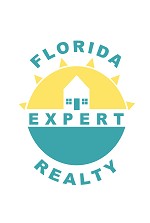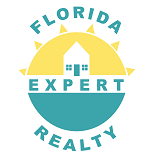Many first-time homebuyers feel sideswiped when they learn about closing costs – but more importantly, the fact that they have to pay them!
If you’re not prepared to pay closing costs, you may not be ready to buy your first house, and that can be crushing.
However, by educating yourself before you start the house-hunt and before you apply for your home mortgage loan, you’ll be well-equipped to become a qualified homeowner.
Defining the Term Closing Costs
Closing costs is a term that encompasses all of the fees associated with your real estate transaction.
Many people think that the only people involved with the sale of a home is the buyer, the seller, and their respective real estate agents. This is not the case.
On the contrary, there are lenders, attorneys, inspectors, appraisers, escrow agents, couriers, and an administrative team that all jump in to close your deal.
Rather than paying them all upfront individually, you pay the collective fees all at once at closing.

Why the Buyer Pays Closing Costs
While it’s true that buyers pay the majority of closing costs, the seller does carry some.
As the buyer, you pay for fees associated with your lender and the transfer of ownership.
The seller, on the other hand, pays the real estate agent fees.
Buyers do usually pay the closing costs, but there have been times when payment of closing costs can be negotiated.

In some cases, the seller agrees to pay part or all of the closing costs. Talk with your real estate agent about this possibility.
One unfortunate fact is that most lenders will not permit you to roll your closing costs into your home mortgage loan.
This means that your closing costs, which could equate to tens of thousands of dollars, will have to be paid out-of-pocket, just like your down payment, which is usually 20 percent of the purchase price of the house you’re buying.
Estimating Your Closing Costs
Closing costs can be anywhere between 1 percent and 8 percent of the total value of the home you’re buying. More often, that number falls between two percent and five percent. That’s a healthy chunk of change.
One way you can positively influence your closing costs is to shop for lenders. Don’t assume that your choices are limited to your bank – or that all home mortgage loans are equal. It’s the lenders that accrue the closing costs you’re responsible for paying.

Three days after your home loan application is approved, your lender has to supply you with an estimate of closing costs. This estimate is called a lending disclosure. And then, three days before closing, they provide a list of actual closing costs.
Lender Closing costs vary based on interest rates and terms. For example, some, but not all, lenders require additional types of insurance or pre-payment of taxes. Research lenders to determine who has the best rates and terms to suit your home-buying needs.
Standard Lender Fees to Anticipate in Closing Costs
When you first apply for your home mortgage loan, there’s an application fee, which is also called an origination fee.
Your lender then orders a copy of your credit report, for which there is also a charge. There’s an assumption fee if you’re assuming the seller’s mortgage.
It’s never a bad idea to have a real estate attorney, but in some states, they’re required. The fees for these bank or law-required attorneys are enveloped in your lender closing costs.

Although we live in a digital era of electronic transfers and instant sending of files via email, some financial institutions still employ couriers to transport important documents.
Wire transfers between banks also have a fee.
An escrow account is sometimes required by the bank to hold funds for taxes and insurance safely. These escrow fees may also include notary fees if documents are signed outside of the escrow office.
If you’ve chosen a fixed interest rate, you may pay a rate lock fee, which ensures that your interest rates are non-variable.
An underwriter is a person in charge of processing your application, gathering your documents, and drafting the contract. You’ll be charged for that as well.
If you’ve chosen to pre-pay your interest or purchase discount points, that money will be due at closing.
Paying for Multiple Insurance Policies
You might be expecting to pay a homeowner’s insurance policy, but there are other types of insurance you may be required to obtain.
Homeowners insurance protects portions of your home and property, but not all, and not in all circumstances. For example, some policies don’t cover floods, which means your lender, based on your location, may require you to have flood insurance.

Your lender, based on your loan qualifications, may require you to obtain private mortgage insurance. Your PMI, or private mortgage insurance, protects the lender if you stop making your payments.
There are two kinds of title insurance: One protects the lender, and one protects you, the buyer. Title insurance protects the lender and the buyer if ownership of the title is disputed.
Surveys, Inspections, and Appraisals
The lender needs to know that the house you’re buying is of the same value as what you’re borrowing. An independent appraiser visits the property to assess its size, condition, and features.
This data is then compared to a comprehensive market report which details recently sold homes in the area. This information allows the appraiser to determine what he or she believes is the fair market value for that property.
That appraisal needs to match up with the amount of money you’re trying to borrow to purchase that house.

A home inspector checks the structure to make sure it’s sound and that all the major systems, such as heating and air, are correctly functioning. The house has to be free of pests like termites, and the foundation and roof need to be in good condition.
The inspection assures the bank, and you, that the house you’re buying is structurally sound and in good condition.
A survey of the property can be required if property lines are in question. This uncertainty is particularly true in rural areas where property lines have not been clearly defined.
Conclusion
You’d think that your astronomical down payment would be enough to get you into your dream house. Unfortunately, that’s just the first step.
The second step is to educate yourself about closing costs and how to estimate the amount you might pay.
Understand that your closing costs don’t get included with your home loan unless your lender offers special conditions. You’ll be paying these thousands of dollars out-of-pocket on top of your down payment.
Shop lenders; don’t settle for the first one who gives you the hope of approval. Investigate their interest rates as well as their loan terms to find the right lender for you.
If possible, negotiate closing costs with the seller who may be willing to pay part or all of those costs.
Above all, talk with your real estate agent about closing costs and how they apply to you.
Have Questions? Ask April!
Give April D. Robinson a call at 727-BUY-SELL (727-289-7355) to learn more about local areas, discuss selling a house, or tour available homes for sale.


